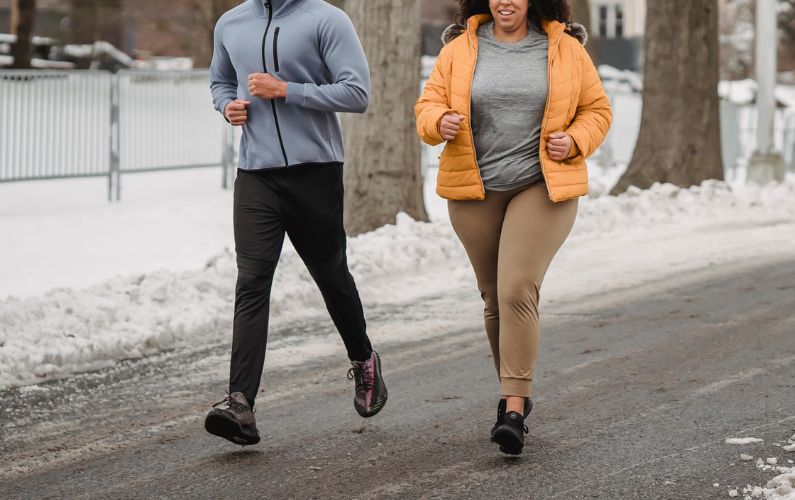Winter Wellness: Navigating Seasonal Health Challenges

Explore our guide on winter wellness. We’ll cover navigating seasonal health challenges with expert-approved advice. Plus, learn how to prioritize immune health, mental well-being, and safety to embrace the season with resilience.
Winter, with its chill in the air and the promise of festivities, also comes with unique health challenges. The drop in temperature, reduced daylight, and an increased prevalence of cold and flu viruses make it imperative to prioritize wellness during this season. In this helpful guide, we will delve into strategies for winter wellness, focusing on our top tips for maintaining health and well-being.
Keep reading to learn more.
Winter Wellness: Navigating Seasonal Health Challenges
Boosting Immunity in the Winter Months
The Immune System and Winter Vulnerabilities
Winter often brings with it an increased susceptibility to colds and flu. Although the cold weather doesn’t directly cause illnesses, it can weaken the immune system, making individuals more prone to infections. For this reason, maintaining a robust immune system is of paramount importance.
Practical Tips for Boosting Immunity
Ensuring that meals are rich in vitamins and minerals is foundational. Fresh fruits, vegetables, and whole grains provide the essential nutrients that support immune function. Staying well-hydrated is equally crucial, as it contributes to optimal immune response. Regular, moderate exercise not only supports overall health but also stimulates the immune system. Prioritizing quality sleep should also be top of mind; lack of sleep can compromise the immune system, making individuals more susceptible to infections. In regions with reduced sunlight exposure during winter, considering vitamin D supplements may be advisable. It’s always best to consult with a healthcare professional when considering a new supplement and be sure to read and follow the label.
Managing Seasonal Affective Disorder (SAD)
Understanding Seasonal Affective Disorder
Winter isn’t only challenging for physical health; it can also significantly impact mental well-being. Seasonal Affective Disorder (SAD) is a type of depression that occurs seasonally, often in the winter months when daylight hours are shorter.

Strategies for Coping with SAD
Regular exercise, even in the form of a short daily walk, can have a significant impact, as physical activity releases endorphins, which help alleviate symptoms of depression. Incorporating mindfulness practices, meditation, and deep-breathing exercises into one’s routine can assist in managing stress and boosting mood. Staying socially connected, whether through virtual meet-ups or safely distanced gatherings, is crucial for maintaining mental health. Seeking professional help is advised if symptoms persist or worsen; mental health professionals can provide guidance and support tailored to individual needs.
Winter-Proofing Your Respiratory Health
Respiratory Challenges in Winter
The cold and dry air characteristic of winter can pose challenges for respiratory health, particularly for older adults who may already have pre-existing respiratory conditions.
Protecting Respiratory Health
Dressing in layers to stay warm, especially when going outside, and covering the nose and mouth with a scarf to warm the air being breathed in are helpful measures. Ensuring good indoor air quality by using air purifiers and keeping living spaces well-ventilated contributes to respiratory well-being. Staying well-hydrated is vital for keeping mucous membranes in the respiratory tract hydrated, aiding the body in its defence against viruses and bacteria. For individuals with respiratory conditions, adherence to prescribed medications is crucial; any concerns or adjustments should be discussed with healthcare providers. Staying up-to-date with flu vaccinations is equally vital, as the flu can exacerbate respiratory conditions.
Our pharmacies are currently offering the COVID-19 and flu vaccines. To learn more or book an appointment, visit this link.
Safety First: Navigating Winter Hazards
Winter-Related Injuries and Safety Concerns
Winter introduces a host of safety concerns, especially in regions where snow and ice are prevalent. Falls and injuries can be more common, particularly for older adults.

Winter Safety Tips
Appropriate footwear with non-slip soles is key to reducing the risk of slipping on ice. Keeping walkways and entrances clear of snow and ice and using salt or sand to improve traction are preventive measures. Ensuring that vehicles are winter-ready by checking tires, brakes, and fluid levels regularly and keeping an emergency kit in the car is essential. When shovelling snow, taking breaks, using proper lifting techniques, and avoiding overexertion are crucial; if possible, considering assistance for snow removal is advisable. Having an emergency kit at home, stocked with essentials like blankets, non-perishable food, and medications, is a proactive measure for potential challenges.
Prioritizing Wellness in Every Winter Season
As winter unfolds, it’s essential to approach the season with a proactive mindset toward health and wellness. By embracing immune-boosting habits, addressing mental health needs, protecting respiratory well-being, and prioritizing safety, individuals can navigate the unique challenges of winter with resilience and vitality. Remember, your local Wellness Pharmacy is here to support you on your journey to winter wellness. Stay well, stay warm, and cherish the seasonal moments of joy.


